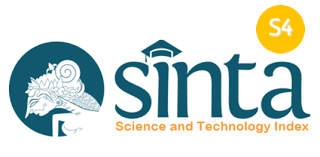AGAMA DAN PENCERAHAN BUDAYA : INTERNALISASI NILAI-NILAI PENDIDIKAN AGAMA ISLAM PADA BUDAYA MASYARAKAT INDONESIA
DOI:
https://doi.org/10.47313/pjsh.v1i2.200Abstract
Islam in the realm of culture has shown its unique dynamics. Besides being a cultural force, Islam, for example, has emerged as a resistance movement faced colonialism. In Indonesia, although Islam has become the "face" of the nation, its history has spawned several interpretations of thought which is viewed differently. This interpretation by itself has shown that the treasures of Islamic culture is not limited to understandings rigid theological and doctrinal alone. On the side of the paradox, Islam as a religion is a cultural force has caused the turmoil that is often unfairly accused. Adults have often campaigned that Islam as a religion of civilization has become a "threat" to the contemporary western world. As a cultural reality, Islam has always claimed to be a universal dimension and perform a variety of adaptations. In fact, in the development of its history, Islam often do contiguity are open to various local cultural areas targeted syiarnya. Islam also widened tolerant of local cultures. In a local view, we are certainly not too surprised, how Islam as a theology, for example, capable of combining with Javanese and Hindu syncretism understood that for centuries has been influenced each other. Islam as a culture has given a touch of "flexible and intimate" against the values of the local culture. By itself, this show Islam as a cultural reality has to ask himself. As far as can be mapped "cultural blindness" would occur in the region basically, that is the psychological dimensions-mental, so actuality cultured most Muslims are actually many detrimental to the development of Islamic culture. If Islam truly a religion that was revealed to the benefit of all the Worlds and its contents, it's time boundaries of formal-structural rigid avoided. Thus, it should be removed impression that when the advance of civilization and culture, it is precisely the religion (Islam) blocking it. The task of religion (Islam) should lead to progress and as he guided her.
Keywords : Islamic doctrine, the Indonesian history, “modernity” of values, inclusivness
References
Al Asqolany, Ibn Hajar, Fath Al Bary “Syarh Shahih AL Bukhori”, jilid VI.
Al Bana, Gamal, Jihad (terjem. Tim MataAir Publishing), Mata Air Publishing, Jakarta, 2006
--------------------, RelasiAgama dan Negara (terjem. MataAir Publishing), Mata Air Publishing, Jakarta, 2006.
Najib Burhani, Bersikap Simpati terhadap Keimanan yang Berbeda, PT. Kompas Media Nusantara, Jakarta, 2001.
Ghazali, Abdul Rahim (ed.), Gus Dur Dalam Sorotan Cendikiawan Muhammadiyah, Bandung, 1999
Mubarok, Ahmad, Prof.DR., Pendakian Menuju Allah; Bertasauf dalam Kehidupan sehari-hari, Jakarta: Paramadina, 2002.
----------Panduan Akhlak Mulia; Membangun Manusia dan Bangsa Berkarakter,Jakarta, PT Bina Rena Pariwara, Paramadina, 2001.
----------,Jiwa Dalam Al Quran, Paramadina, Jakarta, 2000.
Sirajd, Said Aqiel, Prof, DR, KH.,Islam Kebangsaan; Fiqih Demokratik Kaum Santri, , , Pustaka Ciganjur, Jakarta ,1999
Zainuddin bin Abdul Aziz Al Ma’bari, Ahmad, Fath’u Muin bi Syarah Qurratu A’in bi Muhimmatil Aldien, Bairut, Dar Ibn Hazm, 2004.
Materi Pembelajaran Mata Kuliah Pengembangan Kepribadian Pendidikan Agama Islam Pada Perguruan Tinggi Umum, Departemen Agama RI, 2009
Sazili. Islamologi di Perguruan Tinggi, Azza Media, Tangerang, 2014
Downloads
Published
Issue
Section
License
- Hak publikasi atas semua materi informasi yang tercantum dalam situs jurnal ini dipegang oleh dewan redaksi/editor dengan sepengetahuan penulis. Pengelola Jurnal akan menjunjung tinggi hak moral penulis.
- Aspek legal formal terhadap akses setiap informasi dan artikel yang tercantum dalam situs jurnal ini mengacu pada ketentuan lisensi Creative Commons Atribusi-NonCommercial-No Derivative (CC BY-NC-ND), yang berarti bahwa hanya dengan izin penulis, informasi dan artikel Jurnal BACA dapat didistribusikan ke pihak lain dengan tanpa merubah bentuk aslinya untuk tujuan non-komersial.
- Setiap terbitan Populis Jurnal Sosial dan Humaniora, baik cetak maupun elektronik, bersifat open access untuk tujuan pendidikan, penelitian, dan perpustakaan. Di luar tujuan tersebut, penerbit atau pengelola jurnal tidak bertanggung jawab atas terjadinya pelanggaran hak cipta yang dilakukan oleh pembaca atau pengakses.










